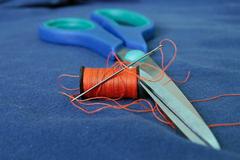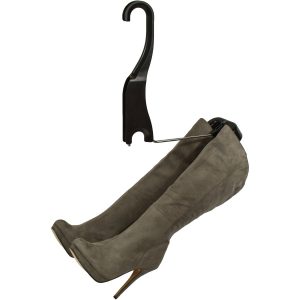 An organization can be a mindset that brings serenity and order to your life, versus something tedious to cross off your list. Here’s how to incorporate an organized mindset into your daily and weekly routine.
An organization can be a mindset that brings serenity and order to your life, versus something tedious to cross off your list. Here’s how to incorporate an organized mindset into your daily and weekly routine.
If you haven’t already, check out our Declutter, Un-Clutter, and Clutter No More and Purge, Purge, Purge blog posts before you read this one. We’ve laid out how to tackle the clutter beast in a way that’ll take the drudgery out of it, and — importantly — give you the end results you’re looking for.
Now, we’re going to take that a step further. Because while transforming your home into a clutter-free zone is a wonderful milestone, we’re now going to talk about how to keep it that way.
So you’ve done the work: You’ve gotten rid of stuff you don’t need, tamed the mess in your closet and/or bathroom and/or any other place where clutter seems to run wild. Now what? Wouldn’t it be marvelous if those places could remain that way for good?
We’re not talking about pristine, sterile environments here, by the way — these are the homes we’re dealing with, that one most special spot in the universe where you come home at the end of a long day that is yours. And the places we live are meant to be just that: livable. Instead, what we’re striving for are homes that have built-in systems that will make it easier for you to be organized than not organized. As in, it’ll be easier for you to follow those systems you’ve set that to allow clutter to pile up. Ready to begin?
The first thing we’re going to talk about is time. No one has enough of it, right? And honestly, if we were all handed, say, eight more hours in a day, that still might not be enough. So the main point here is to use the time you do have wisely AND to understand that the time you spend organizing will ultimately save you time in the future.
 Get that? It’s super important and super true: Whereas it may feel like you simply don’t have time to think about or implement organizational strategies, the fact is that you do. Because not only do we make time for the things we ultimately want and need to make time for, doing so guarantees that you’ll be freeing up future time.
Get that? It’s super important and super true: Whereas it may feel like you simply don’t have time to think about or implement organizational strategies, the fact is that you do. Because not only do we make time for the things we ultimately want and need to make time for, doing so guarantees that you’ll be freeing up future time.
Let’s talk about day-to-day stuff first.
If you’re a morning person, bless you. The rest of us struggle through them, whether just a bit or a lot. But all of us will benefit from taking a small portion of time to set up our mornings to be organized. And you can begin doing that the evening before.
Set up everything for breakfast so that you have to do as little as possible in the a.m. If you’re a coffee drinker, get the coffee pot ready so that all you’ll need to do is press a button (or set a timer). If you’re an oatmeal or cereal eater, get it ready: Pour it into a bowl. Add whatever you normally add to it: Raisins, nuts. So that in the morning, all you need to do is add milk or pop it into the microwave or onto a stove. If you drink shakes in the morning, assemble them and put them in your fridge so that all you have to do the next day is blend them.
 Check your weather app to see what you’ll be dealing with the next day. Get your outfit ready. Lay out your clothes, hang them on the same hanger, assemble everything so that all you need to do is put those things on.
Check your weather app to see what you’ll be dealing with the next day. Get your outfit ready. Lay out your clothes, hang them on the same hanger, assemble everything so that all you need to do is put those things on.
See what we’ve done with the above? Everything will be right there waiting for you in the a.m., and requiring very minimal decision-making. You know that feeling that things take so much longer in the mornings than any other time? That’s what we’re fighting with here. And a few minutes of planning in the evening will make a huge difference in the morning.
Think about what else impedes you in the morning. Is it always a struggle to get everyone out the door? Do hats and mittens always go missing? Then that’s the next thing you need to organize. Use a system that fits your home: It could be a basket for each individual that contains their hat, gloves, scarf, sunglasses, etc. Or a color-coded hook where all that stuff hangs. The beautiful thing here is that once these things are ready to come off, they have a place to live, instead of being strewn about.
 Same goes for shoes and boots: If you figure out a system for that pile by the front door, then that system will be right there waiting for everyone when they get home. For specific ideas, check out our blog on Organizing Footwear.
Same goes for shoes and boots: If you figure out a system for that pile by the front door, then that system will be right there waiting for everyone when they get home. For specific ideas, check out our blog on Organizing Footwear.
Let’s now talk about weekly tasks. Once you’ve got your day-to-day managed, there are things you can do on a weekly or bi-monthly basis that will, again, save you time in the long run. To figure out what these tasks might be for your household, think about what you seem to always run out of time to do during the week. Is it making lunches, for example? If so: Set aside a weekend afternoon to cook and pack a week’s worth of lunches. Or perhaps it’s cooking a plethora of meals that you’ll then reheat for dinners each evening. If the thought of simply pulling out a home-cooked meal and reheating it in the evening feels like a relief, then try that and see how it works for you.
Cleaning-wise put together a checklist of weekly tasks and set aside time to do those. And think about whether you have any impediments along the way here. Do you need to create a storage system for your kids’ toys, for example? The oldie but goodie: “A place for everything and everything will be in its place” is tried and very true.
Moving on: A great way to bring more organization into your life is when the seasons change. As you pack away winter things and bring out warm weather clothing, that’s a great time to go through both sets: Do they still fit your life? Do you still want them? Don’t keep them if not. That’s also a great time to get all cleaning, mending, etc., done. Don’t put shoes that need work away before taking them to a cobbler first, for example. Same goes for clothes: Either do those repairs yourself or take them to your dry cleaner.
We’ll end with some thoughts for once-a-year work: Look back on the past year. What worked? What didn’t? And how can you bridge the gap between those two? The idea is to control your environment versus letting it control you. Which you can do! We’re here to help. Check back here regularly for more articles like these, and follow us on social media for more helpful tips on an organized life.


